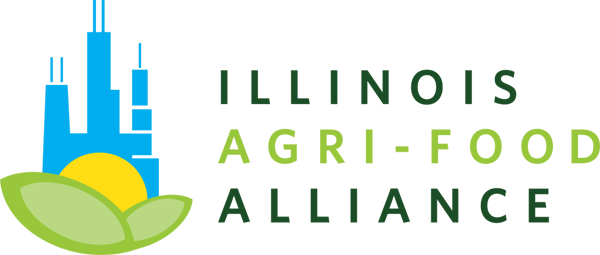Illinois Farm Bureau and the Searle Funds at The Chicago Community Trust have unveiled a new strategy partnership, The Food and Agricultural Roadmap for Illinois — FARM Illinois.
By Kay Shipman
Published on: Sep 15, 2014
FARM ILLINOIS will encompass the state’s top agricultural, business and economic leaders to develop and advocate for a comprehensive strategic plan focusing on the state’s economic leadership in global food security. Leaders will work toward releasing a plan next spring.
FARM Illinois grew from the roots of Vision for Illinois Agriculture. Begun in 2008, the Vision for Illinois Agriculture involved leaders representing many agriculture sectors. The strategy’s three major goals are for Illinois to rank among the top three states in both food manufacturing and in crop and animal production, and to lead the nation in biobased product technology and services.
Illinois Farm Bureau President Richard Guebert Jr. envisioned FARM Illinois “planning how the agriculture and food industries can come together to promote the whole sector from farm to plate.”
Guebert, who will co-chair the production and supply committee, foresees benefits to be gained from enhanced connections among Illinois agriculture leadership and Chicago industry leaders. Those connections could “tie all our agricultural assets and Chicago food assets together,” Guebert continued.
University of Illinois President Robert Easter, chairman of the leadership council, agreed with Guebert on increased communication and conversations in all sectors from equipment manufacturing to meat and food processors, and from financial institutions to the Chicago Board of Trade. For 100 years, “the global market was set here; it gave us economic opportunities,” Easter noted.
“I hope this picks up where the Vision was and gains broader involvement of industry sectors and all parts of the state,” Easter said.
Among IFB goals for the new project are increased awareness about the economic importance of agriculture and food to Illinois. This would result in increased investment in ag research and greater interest in agricultural careers.
The U of I and its fellow institutions need to “provide the workforce with education and the technology for whatever the next phase is going to be,” Easter said.
Other IFB goals are support for investment in Illinois transportation infrastructure, an improved state business climate with a common sense regulatory environment, state fiscal integrity, and efforts to attract food and agricultural businesses here.
IFB also wants to continue working toward Vision for Illinois Ag goals for commodity and value-added production, food manufacturing, and biobased product technology and services.
